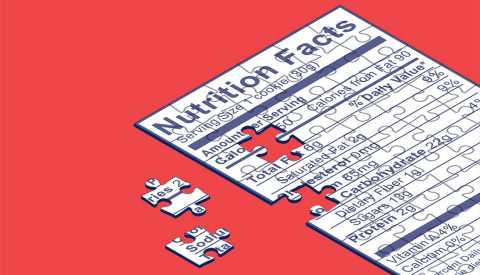AARP Hearing Center
Your BMI Calculator Results Guide: Overweight
Your BMI suggests you are overweight — explore these tips and resources


Photo Illustration: AARP; (Source: Getty Images)
Keep in mind that BMI has its limits. BMI recommendations differ based on your gender and other variables. For instance, your muscle tone plays a role as you age.
To get a better read on the health risks associated with your weight, your doctor may combine BMI with a waist circumference measurement called the waist-to-hip ratio — your waist measurement divided by hip measurement. If most of your fat is around your waist, rather than at your hips, you’re at a higher risk for heart disease and type 2 diabetes. This risk increases with a waist size that is greater than 35 inches for women or greater than 40 inches for men. Research shows waist-to-hip ratio may be an even stronger predictor of an early death from any cause than BMI, with higher waist-to-hip ratios increasing the risk.
If your BMI falls in the overweight category and you have two or more risk factors for heart disease and related health conditions, losing weight is recommended. Even a weight loss of just 5 to 10 percent of your current weight will help lower your risk of developing diseases. A reasonable and safe rate of weight loss is 1 to 2 pounds per week.
One of the secrets of healthy weight loss is to keep a record of everything you eat. Smartphone apps make it easy to do. Tracking can help you see associations you might not have noticed before. With those in mind, you can start to change your behavior and eat less.
Although eating less is key, exercise can be very helpful, especially if it replaces time spent snacking. You’ll see the biggest benefit if you go from being a couch potato to moderately active, but any activity helps and also lowers your risk for chronic diseases.
Research suggests that a daily weigh-in helps you to drop pounds. People who weighed themselves every day lost even more weight than those who weighed themselves five times a week. Daily weighing seems to make it easier to adopt weight-loss behaviors.
People who sleep less than seven hours a night have higher rates of obesity. People on a weight-loss program who slept poorly developed higher BMIs and larger waistlines over a year’s time, research shows. Try turning off digital devices and TVs an hour before bedtime and create a soothing evening ritual to prepare for sleep.
There are new drugs as well as combinations of older drugs that have been shown to be effective. You may be a candidate if you have a BMI of 27 to 29, along with another health condition, such as high blood pressure or diabetes.
Explore Health Articles
AARP Health Resources


AARP Membership
$12 for your first year when you sign up for Automatic Renewal
Get instant access to members-only products and hundreds of discounts, a free second membership, and a subscription to AARP the Magazine.






































































